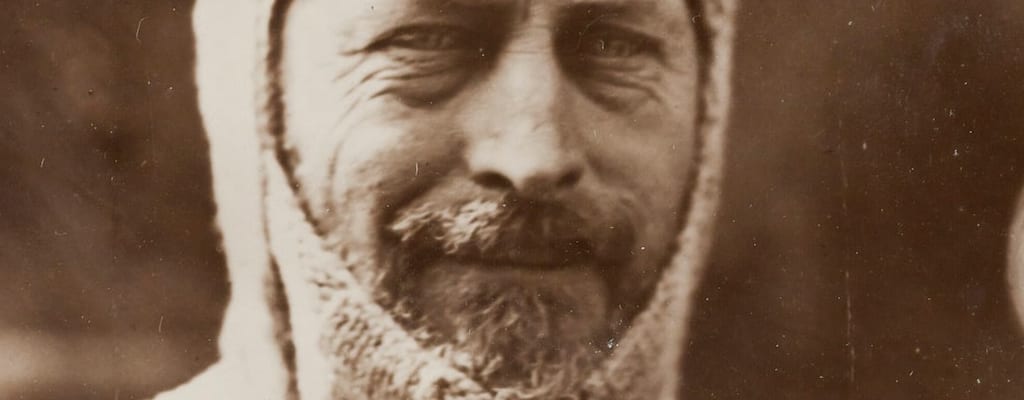have seen one’s day: Idiom Meaning and Origin
What does ‘have seen one's day’ mean?
The idiom "have seen one's day" means that something or someone used to be great or important in the past, but is no longer relevant or valuable in the present.

Idiom Explorer
The idiom "in this day and age" refers to the present time or era, emphasizing its contrast with the past. It expresses the idea that things have changed significantly and highlights the modern advancements and developments that currently exist.
The idiom "in all one's born days" expresses the idea of someone's entire lifetime or existence. It emphasizes the length of time a person has lived and implies surprise or disbelief at a particular event or experience.
The idiom "have seen this movie" means to be very familiar with a situation or scenario, often implying that it is repetitive, predictable, or uninteresting.
The idiom "have one's moments" means to have periods of time where someone's performance or behavior is impressive or notable, but it is not consistent or sustained.
The idiom "have had one's chips" means to be defeated or to have failed, often resulting in a negative outcome or consequence. It is commonly used to express the idea of someone being at the end of their chances or opportunities.
The idiom "have had it up to here" means being extremely frustrated or fed up with something. It signifies reaching a limit or threshold of tolerance.
The idiom "have had it" means to be completely fed up, exhausted, or at the limit with a situation or person.
The idiom "have done with" means to finish or complete something and have no further involvement or connection with it.
The idiom "have been around" means to have a lot of experience or knowledge about something, often implying that one has seen or encountered various situations or people over a long period of time.
The idiom "go the way of the dinosaurs" means to become extinct or obsolete, similar to how dinosaurs disappeared from the Earth millions of years ago.
Unearthing Lingual Relics
The idiom "have seen one's day" is a phrase commonly used in English language. It is believed to have originated from the 17th century and has since been used to convey the idea that someone or something has reached a point of decline or is past its prime.
One interpretation of the idiom suggests that it refers to a person or object that was once influential, powerful, or thriving but has since lost its prominence or effectiveness. The phrase implies that the person or object has experienced better days and is now in a state of decline or obsolescence.
The idiom can be used in various contexts, such as describing a person who was once a respected figure but is now outdated or irrelevant in their field. It can also be used to refer to objects or technology that were once popular but have since been replaced by newer and more advanced versions.
A possible explanation for the origin of the idiom is its association with the natural cycle of life. Just as individuals go through different stages of growth, maturity, and decline, so too do objects and concepts. This idiom captures the idea that everything has its time and eventually fades away or loses its significance.
One related idiom, "day of days," is used to describe an exceptional or extraordinary day. It signifies a day that stands out or surpasses all others in terms of importance, significance, or excitement. This idiom emphasizes a day that is exceptional and unlike any other, highlighting its special nature.
Another related idiom, "days of yore," refers to a past time or era, often associated with nostalgia and reminiscence. It is used to evoke a sense of longing or fondness for the past, particularly a time regarded as better or more idyllic. This idiom emphasizes a specific period in the past and the emotions associated with it.
The idiom "bad old days" is used to describe a period in the past that was characterized by negative or undesirable qualities. It indicates a time that was difficult, challenging, or less favorable compared to the present. This idiom emphasizes the negative aspects of a past time or era.
"back in the day" is another related idiom that is commonly used to refer to a time in the past, usually with a sense of nostalgia or fondness. It is often used to reminisce about a particular period or experience, highlighting the speaker's connection to the past. This idiom emphasizes a sense of personal connection to a specific time in the past.
Lastly, the idiom "day and age" is used to refer to the present time or era, highlighting the contrast between the past and the present. It signifies the current period in history, often implying that things are different or have changed compared to previous times. This idiom emphasizes the notion of progress and the passage of time.
It is worth noting that the idiom "have seen one's day" is often used figuratively rather than literally. It is a metaphorical expression that relies on the audience's understanding of its meaning in context. When someone says that a person or thing has "seen its day," they are not suggesting that it has physically witnessed a particular period of time, but rather that it has gone through a process of decline or deterioration.
Overall, the idiom "have seen one's day" is a widely used expression in English language. It conveys the notion of decline or obsolescence and can be applied to various situations involving people, objects, or ideas. By understanding the metaphorical nature of the idiom, one can better appreciate its significance and use it effectively in communication.
Example usage
Examples of how the idiom "have seen one's day" can be used in a sentence:
- He used to be a great athlete, but now he has seen his day and can't perform at the same level.
- This old car has definitely seen its day and is no longer reliable for long trips.
- The fashion trend from the 90s has made a comeback, but some argue that it has seen its day and should stay in the past.
More "Obsolete" idioms



